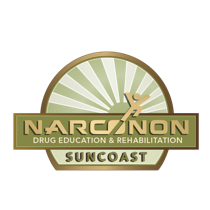Drug addiction is a huge problem here in the United States. A 2010 survey showed that 23.5 million Americans struggle with drug and alcohol addiction. Young people are the most susceptible to developing addictions, and the numbers of kids using drugs and alcohol continue to rise. Here are some statistics:
- In 2011, 22% of high school students were involved in binge drinking in a one month period.
- 20% of high school students admit to trying alcohol for the first time before they had their 13th birthday. This statistic is significant because drinking at a young age increases the risk of developing alcohol abuse problems later in life.
- The University of Michigan did a survey which found that 25% of 12th graders had tried an illicit drug within 30 days of the time when the survey was taken. Marijuana was high on this list, but so were prescription drugs and amphetamines.
- In a survey done by the Centers for Disease Control, it was found that 26% of high school students bought illegal drugs on school property.
The sheer number of people dependent upon or addicted to drugs or alcohol in the US means that you probably know or are related to someone who is suffering from addiction. You can read about the signs of addiction here. This puts you as a friend or family member in a position to help the person, but you may not know how or what to do. Here are seven things you can do to help: 
- Be open and ready to talk. A huge step in getting your friend to face his or her addiction is to simply get them to talk about it. Always be sure they know you are available to talk about anything. Many addicts lose their friends because of their addiction or due to their unpredictable and even criminal behavior. It’s important for your friend to have a person outside of his or her group of junkie friends that they can come to for help.
- Realize you can’t help them alone. You are not a rehab facility. As much as you want to help your friend or family member personally, you have to realize that you can lead them to the path to recovery and support them on the way – but they will need professional help to resolve their addiction.
- Bring up your concerns. Don’t let a situation that worries you pass by. Directly addressing the aspects of your friend’s behavior which worry you in a helpful, non-accusatory manner will at the very least help that person understand how much you care. Just be sure to address these concerns when they are sober if at all possible.
- Do your research. Understanding the substance to which your friend is addicted will help you observe the signs of their addiction, discover who is enabling them, and get them some help.
- Support any constructive decisions they make. If your friend or family member decides to go to rehab, undergo detox, or even mentions the possibility, support their decision. This is a time period when your friend needs you more than ever – so be there for him or her.
- Keep away from gossip. Your friend or family member will probably frustrate you or tell you something you really didn’t want to know. Don’t gossip about him or her to others. If you need an outlet, talk to someone you know can keep your confidence and discuss your frustrations – not their addiction. This will give you the opportunity to look at your friend’s addiction as an issue to solve rather than your personal problem.
- Consider getting the help you need to stage an intervention. This is a tough call, but if your friend or family member shows no sign of slowing down their destructive behavior, you may need to have an intervention. You can call us confidentially at (877) 850-7355 to discuss your friend or family member and get help in deciding if this is the right option.
Remember, your friend or family member needs your help, but the weight of their addiction doesn’t have to rest on your shoulders. There are plenty of ways for you to do your part in helping and supporting him or her without their behavior making a huge negative impact on your life. Be sure to keep your own health and stress levels in mind while helping your friend. And, as always, you can contact us for help at (877) 850-7355. We appreciate you, your support for your loved one, and would be happy to help get them into rehab.
